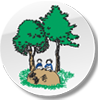Aims
At Lawley Primary School our aim is to improve pupils’ literacy ability and support them in developing a life-long approach to enjoying all aspects by encouraging pupils to:
- Be effective, competent communicators and good listeners.
- Express opinions, articulate feelings and formulate responses to a range of texts both fiction and non-fiction using appropriate technical vocabulary.
- Foster an interest in words and their meanings, and to develop a growing vocabulary in both spoken and written form.
- Enjoy and engage with and understand a range of text types and genres.
- Be able to write in a variety of styles and forms showing awareness of audience and purpose.
- Develop powers of imagination, invention and critical awareness in all areas of literacy.
- Use grammar and punctuation accurately.
- Understand spelling conventions.
- Produce effective, well-presented written work.
We intend that out pupils become fluent, confident writers and our teachers use a wide range of techniques to ensure these outcomes. Our aim is to provide the children with the skills to write expressively for a range of different purposes and to entertain differing audiences. In addition, children especially enjoy engaging techniques such as drama, role play and the inclusion of contextual learning, all of which help our pupils to succeed. We want pupils to acquire a wide vocabulary, a solid understanding of grammar and be able to spell new words by effectively applying the spelling patterns and rules they learn throughout their time in primary school.
We believe that all pupils should be encouraged to take pride in the presentation of their writing by developing a legible, joined, handwriting style by the time they move to secondary school.
We intend that children are able to select the appropriate forms of grammar, and punctuation to serve their purpose when writing the given text type. Spelling patterns are embedded, through discrete spelling lessons, so that children can spell most words and are encouraged to use the dictionary and thesaurus to spell and include adventurous vocabulary. This then gives them the ability to edit and improve their writing, and produce final pieces that are suitable to communicate the purpose to an audience.
The wider curriculum is often taught hand in hand with an additional Literacy focus ensuring that children are able to read, access and enjoy their learning in a cohesive manner, making links and converting learning into their long-term memory.
Planning
The National Curriculum 2014 forms the basis of teaching, learning and assessment. English units are planned around high-quality texts with cross curricular links across a variety of subjects and genres. The length of a unit may vary. Teachers plan closely with year group partners to ensure consistency of opportunity for all children. Clear learning objectives and success criteria are set for each session and are shared with pupils. Teachers differentiate according to the needs of the pupils. ICT is used where it enhances, extends and complements literacy teaching and learning.
Our curriculum is arranged with topics linked to an over-arching year group theme, usually lasting half a term. The Curriculum Map, the long-term yearly plan, ensures that appropriate topics can run side by side to create as many learning links as possible.
Our teaching of writing is planned around high quality appropriately levelled texts, of varying genre and context, which are linked to our current topic. This enables us to develop confident, enthusiastic writers who can express themselves in a variety of different styles and across a variety of contexts and children are provided with regular opportunities to write for a range of purposes and audiences. Writing tasks are specific and meaningful, and often meet a purpose to engage children and to illustrate how their writing skills can be applied to real life contexts. Medium Term planning supports teachers to plan a sequence of progressive lessons, linked to their specific year group progression map, giving the children chance to develop and increase their knowledge and skills, building on prior experiences and making connections in their learning.
Within the wider curriculum, teachers ensure that there are opportunities planned for children to further develop their literacy skills, including regular cross-curricular writing, ensuring that standards are consistent across the curriculum. At Lawley Primary School, we believe that writing is strengthened by instilling a love for reading within our pupils. (Please see our reading section on the school website).
Specific subject knowledge and vocabulary are fundamental; therefore, children are provided with and are taught technical and adventurous vocabulary throughout their learning.
Grammar and punctuation knowledge and skills are taught through English lessons and progression is ensured by use of the year group progression in writing maps. Teachers use these to ensure specific writing skills are taught in a progressive manner, are revisited and consolidated and a mastery approach is taken to provide opportunities for greater depth writing. Teachers respond to children's work and ensure common misconceptions are taught to ensure progress.
Impact
The impact of our English curriculum is that children understand the relevance and importance of what they are learning in relation to real world concepts. Children know that writing is a vital life skill that they will rely on in many areas of their daily life. Children have a positive view of writing due to learning in an environment where writing is promoted as being an exciting, engaging and enjoyable subject in which they can express themselves confidently and creatively.
Outcomes of work in both English and other books evidence the high quality of work and the impact of varied and cross-curricular writing opportunities. These enables children to write across a range of genres and adapt their writing successfully, considering the purpose. Because they are being exposed to adventurous vocabulary, this allows them to express themselves in imaginative ways as well as use the accurate terminology when studying the wider curriculum.
